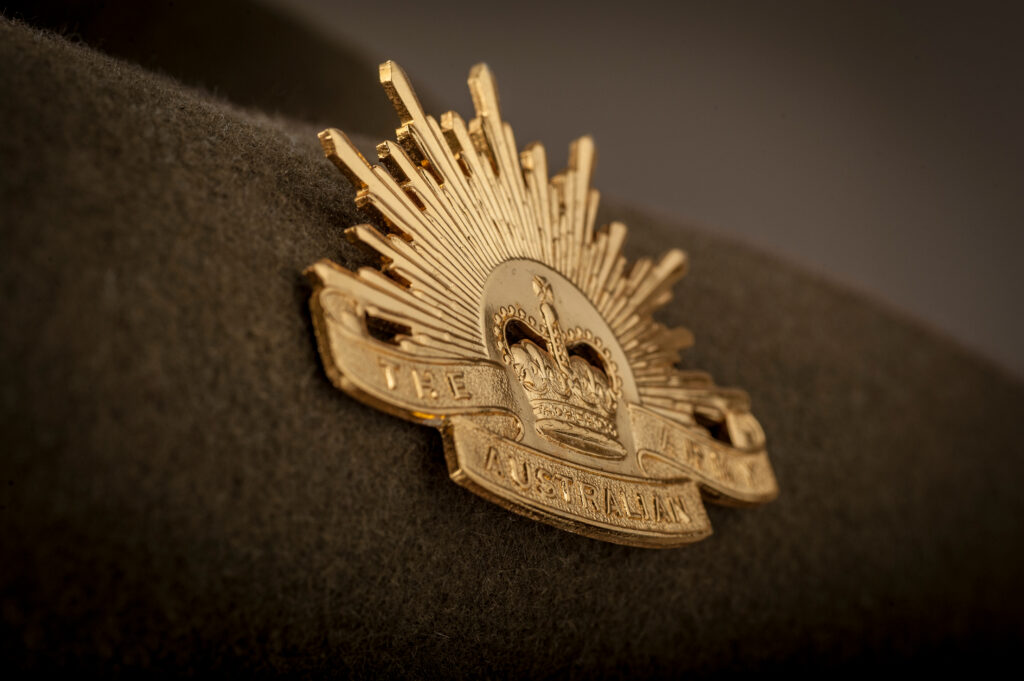Men make up 80 per cent of the Australian Defence Force, meaning most Defence partners are women, an aspect acknowledged in the Final Report from the Royal Commission into Defence and Veteran Suicide.
Released on Monday, the report highlighted the neglect of family members and the challenging impacts of being in these families. The Commission reported that these women felt invisible and that the model of military family life was based on traditional roles. Wives would follow their husbands’ careers as they apparently had no needs of their own.
This echoes the findings of our online survey of 41 civilian female partners in Defence families. These include career, ‘free work’, caring responsibilities, domestic violence, secondary transfer of trauma, and access to information, resources and support.
Career interruptions and free work
Defence members are often posted every 18 months to 2 years and often go to a new location to start the new role before the rest of the family. This means their partners are often responsible for packing up, quitting jobs, and saying goodbye.
They also need to organise a new job, and as the primary carers of children, new early childhood education and school. They also need to support their children’s emotional responses to these relocations. Once at the new location, they need to find new health services and make new social connections.
This ‘free work’ comes at the cost of their careers, as they move in and out of metropolitan and regional, rural and remote locations. It means many careers are sacrificed for the member or to care for the children as the member is deployed. The report stated:
‘Defence spouses are the most over-qualified, underemployed group in Australia because they are regularly moved around from place to place, have great qualifications, great skills and experience but have to keep changing jobs’. (Royal Commission Final Report Vol. 6, p. 14)
In our study, one participant stated:
My children struggle with big changes … relocation, new school, [and when our] army member is away for extended periods. Their behaviour worsens, their anxiety increases, and meltdowns occur. They become very different children, to the point that due to our constant military challenges, I have given up my medical career to be a full-time support. (Skye)
Caring roles, domestic violence and the secondary transfer of trauma
Military members face exposure to trauma within the military organisation and due to their deployments in peace-keeping and war zones. Trauma exposure can lead to physical and mental injuries or moral injuries.
Members’ families and close friends are likely to be among the first to observe changes in their loved one’s mental and emotional state. As a consequence, families are often first responders in providing mental health first aid and support. (Royal Commission Final Report Vol. 6, p. 26)
This means extra caring responsibilities for their partners. The trauma can transfer within the family to the partners and children, meaning more caring is needed by the partner while their own health is deteriorating.
While the partner is likely to have access to medical and mental health support, the partner and children often experience poor health access due to frequent moving and shuffling between waiting lists in regional, rural and remote locations. Access to online counselling through Open Arms, while free, can be limited by the number of sessions available.
Mental health injuries and moral injuries can also lead to risk-taking behaviours and self-medication with alcohol and other drugs. This can spark tensions in the home and increase the risk of domestic violence, and sometimes, relationship breakdowns.
In our study, partners revealed military family challenges:
I have focused on giving them adequate emotional support (Smita)
It’s quite negative. (Gail)
My oldest … writes her feelings down and shreds them to help them not take over. (Felicity)
Access to information, resources and supports
The Commission also revealed the lack of access families have to information, resources and support. This includes better support for partners such as relocations, deployment, and when members transition out of Defence. They recommended:
Providing an evidence-based suite of information and resources to support families, especially at times of peak stress. (Royal Commission Final Report Vol. 6, p. 56)
Our study revealed partners wanted resources for their children, too, with a way to access the information as their needs change. They said:
I haven’t found any [resources for] two small children, and I’ve been crying searching for help. (Edwina)
The lack of help or resources is maddening. The Navy and Defence Force wasn’t created yesterday. Thousands of kids and parents have had to deal with what I’m dealing with yet no help is available. (Lucy)
They also made many recommendations to improve how partners and children of Defence members and veterans are treated. Much work must be done, and many attitudes need to change to recognise and support the free work women do to assist Defence in their role as partners and carers. This was noted by the Commissioner, who asked Major General Stothart:
In 37 years, the issues don’t seem to have changed. … are we actually putting the resources into the families that are needed?
If you need help, support is available. Please contact Beyond Blue or Lifeline.
Support services with a Defence link are also available. Please see the following services.
Defence Member & Family Support
Legacy
Defence Families of Australia
Defence Housing Australia
Open Arms
Soldier On
Mates4Mates
Kookaburra Kids


